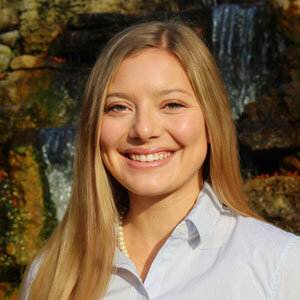
Dorm Life as A Reflection of Liberty
Written by Corinne Prost
Among the many unique features that define Hillsdale College, one in particular that draws a lot of questions for students is the on-campus housing structure. The dorms are single-sex and mandate specific visiting hours and rules. Even The Suites splits upperclass men and women, using barcode entry technology on either side, and mandates visitation rules. In a day and age when co-ed housing is in vogue for most colleges and universities in America, Hillsdale’s on-campus housing upholds a different tradition.
This is a good thing. In addition to building better character, it safeguards each student’s right to privacy in their living quarters and places their education as a priority. Without these rules in place, the peaceful environment that students currently enjoy would likely cease to exist.
Most complaints lodged on campuses nationwide with co-ed housing range from annoyances such as unwelcome solicitation and general disregard for quiet hours to study or sleep, to more serious issues such as bodily assault or theft.
“We create order in such a way that encourages good habits and disciplines,” said Dean of Men Aaron Petersen. “There’s a way that men and women cultivate virtues amongst their own that is important.”
Associate Dean of Men Jeffery Rogers, more affectionately known by students as Chief, added, “Visiting hours create responsibility and accountability. Even in the military we had visiting hours to encourage these things. It teaches you self-government—which is truly about controlling your passions.”
Christa LaVoie, ’20, head residential assistant at Mauck Hall, said that one benefit of the system is its close relationship to Hillsdale’s honor code.
“It is an honor system, wherein boys show their respect for girls by allowing them privacy. In addition to this, the housing structure makes the environment more welcoming and focuses on fostering relationships. It allows the opportunity for underclass women to be mentored by upperclass women.”
The structure of on-campus housing has greater implications than for the students themselves—it defines the very character of our society. The type of citizens who make up our nation very well make up the governing structures that affect every aspect of our lives, from our local schooling systems to our international politics. But for a young student or unaware outsider, these greater implications are not immediately visible. What’s before them are the “can” and “cannots,” not necessarily the “why.”
We usually come to college asking, “What do I want to do?” The better question might be, “What do I need to do?” At the end of my freshman year, I came to the realization that those bigger and better things I had my eyes set on required buying into intellectual and moral virtues. Oddly enough, striving to live by these virtues and the rules molded by them brought me greater happiness and success in various areas of my life.
True self-government is inconsistent with the sort of endless unchecked behavior that comes from choosing by desire (want) rather than personal responsibility (need). Freely choosing any lifestyle is an exercise in license, not liberty.
LaVoie explained, “At first glance, these rules and guidelines seem contrary to self-government and liberty. Yet a closer look reveals that we in fact have more liberty. Liberty is not being free to do what you want to do at all times. Rather, it is choosing to give up some smaller freedoms to contribute to a more well-ordered campus culture. A campus that promotes respect for the opposite gender allows freer and more comfortable interactions between students.”
The entire purpose of the single-sex housing structure and visitation rules can be summarily accounted for as a mode of discipline. It is a means to the ends of living virtuous lives capable of sustaining the gift of liberty.
“Discipline is a form of love and compassion for our students,” Dean Petersen said. “It helps them to create good habits that aspire to loftiness. Even the ‘meanest’ disciplines are the best I have for these students, because they require them to be honest with themselves and others.”
At the end of the day, the on-campus dorms at Hillsdale College offer more than rigorous character-building, or even the virtues that lead to self governance. The hard-hitting questions are fleeting thoughts. The immediate, memorable benefit that students gain is the community of the men or women who fill their dorm halls.
“Dorm life has been an integral piece to my time as a college student. The community it has given me makes the college environment feel more like home,” LaVoie said. “I love that I know every girl in this dorm, that girls will study together in the lobby, encourage each other to work hard, and that we all understand and empathize with the challenges of Hillsdale’s academia. As an RA, it is my job to put on a minimum of four events in addition to a dorm Bible study. These events are philanthropic, academic, social, and wellness-oriented. In putting on these events for my residents, I can encourage and help them to be healthy in mind, soul, body, and spirit.”
 Corinne Prost, ’19, is an American studies major and rhetoric minor. She dreams to one day own a library so extensive that it rivals the one from Beauty and the Beast.
Corinne Prost, ’19, is an American studies major and rhetoric minor. She dreams to one day own a library so extensive that it rivals the one from Beauty and the Beast.
Published in March 2019